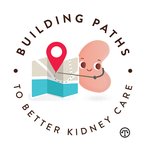

(NAPSI)—For the 37 million adults in the United States living with chronic kidney disease (CKD), research offers promising insights into ways to improve and prolong kidney health. The National Institute of Diabetes and Digestive and Kidney Diseases (NIDDK), part of the National Institutes of Health (NIH), is using innovative research to change the way we understand, treat and prevent kidney disease. Future research discoveries may allow doctors to provide targeted treatment plans that better suit the individual and improve health outcomes.
NIDDK’s Kidney Precision Medicine Project (KPMP) is one example of research that is helping to gain a deeper understanding of the causes and types of kidney disease. CKD was thought to be one disease with one cause and one treatment. Today, we understand that CKD has many causes and there are many potential treatment paths. KPMP aims to transform the future of kidney care by collecting kidney tissue samples from people across all races, ages, and walks of life. With knowledge gained from studying the samples, one of the goals of KPMP is that health care professionals will be able to provide treatments and prevention approaches best matched to each individual, building paths to better kidney care.
“Precision medicine research is key to finding new ways to improve the health of people with kidney diseases,” says NIDDK Director Griffin P. Rodgers, MD. “As researchers work toward developing more and better treatment options, there are steps people with, or at risk for, kidney disease can take today to build their own path to better kidney care.”
Three ways you can build your path to better kidney care are to be an active participant in your care, follow your care plan and build a kidney-healthy lifestyle.
Being an active participant in your care means working with your health care team to create a kidney care plan that fits your lifestyle, mobility, health status and dietary needs. Ask questions, identify healthy habits you can stick to, and talk with your team if adjustments are needed.
Following your care plan means taking medicines as prescribed and attending your medical appointments. Also, consider getting vaccines recommended by your doctor and do your best to follow a kidney-healthy lifestyle.
A kidney-healthy lifestyle includes making physical activity part of your routine, maintaining a healthy weight, choosing a healthy meal plan, quitting smoking, reducing alcohol and getting enough sleep. Each of these areas can be personalized to help meet your needs and health goals.
For example, physical activity is beneficial for both your physical and mental health. Aim for at least 30 minutes of activity each day. If you can’t fit in 30 minutes at once, try 15 minutes twice a day, or 10 minutes three times a day. Find activities that fit your environment, budget, and mobility. Go for a walk with a friend, ride a bike, look for free or low-cost fitness classes offered in your community or follow along with a workout video from your own home. You don’t have to make changes all at once! Even gradual progress can help you protect your kidneys and slow the progression of kidney disease.
For more information on building your path to better kidney care, visit the NIDDK website at www.niddk.nih.gov. To find out more about KPMP research, visit www.kpmp.org/about-kpmp.